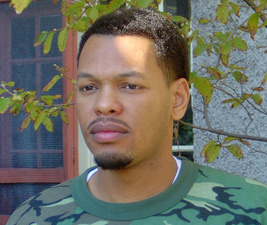FCNNEWSSOURCE

Evidence that Hip-Hop has transcended the music industry and is dominating world culture beyond entertainment can be found in many places — on television commercials that sell products like cars, clothes, laundry detergent and food, and children’s cartoons, such as one featuring a life-sized teddy bear rhyming ABCs. It is even woven throughout movies and books. So it made sense in 2003 when a group of activists, artists, educators, entrepreneurs, journalists and civic leaders from the Hip Hop generation sought to funnel its political and cultural power into mainstream political activities and address social issues, including criminal and economic justice, educational empowerment, health, environment and welfare, and media regulation. Their efforts birthed the National Hip Hop Political Convention, which draws people from the global community to develop, endorse and vote on a political agenda for the Hip Hop Generation. Jay Woodson, a NHHPC organizer out of Philadelphia, spoke with Final Call staff writer Charlene Muhammad about the corporate manipulation of Hip-Hop.
FINAL CALL (FC): A recent study of rap songs and music videos on BET and MTV found that several major corporations advertise their products or services during programs that often expose explicit lyrics and images to children. I remember the time when the music industry and society held that rap and hip-hop music was just a fad that would pass. What’s happening now that “everyone” seems to be on board?
JAY WOODSON (JW): What our options are in this political economy are options for profit, which benefits large corporations. This includes the entertainment industry. They give a very narrow message and image of what Black life is. It’s materialistic, about death, it’s about violence, and it’s about misogyny and any diverse or alternative messages and images of that, they don’t seem to support because they don’t find it profitable to have diverse aesthetics within the entertainment industry for people to purchase and to view on television. A lot of time when it comes down to critiquing BET and Viacom, we really need to look at the policy of communications. Like, we understand that the airways are owned by people, who give licenses through the Federal Communication Commission. With legislation that was passed in the mid-90s under Bill Clinton, Congress narrowed the plan for people to tap into the media. A lot of larger media bought up media in smaller markets and it narrowed the choices for smaller media or even public access to have cable programming or even local radio stations. So you have these large corporations such as Clear Channel giving such small packages of 20 songs that are played over and over again.
FC: What do you believe is at the root of this?
JW: The reason they are played over and over is because of payola. A system where these entities that are paid by record labels then in secret pay off programming directors to pay their songs. If the media wasn’t so consolidated or monopolized by a few corporations then you would have local and higher quality programming to give people choices, but since were dealing with minimal choices, the images that we are fed are not necessarily conducive to humanity and civilization.
FC: What does payola look like today? How much would you say programmers or radio jocks are paid to push these songs?
JW: It was $5,000 and $10,000 in the 90s but now that a POWER station or a HOT station and some of these others are bought up, instead of going to those program directors in L.A., Philadelphia, D.C., Chicago, you’re now going to a program director who’s in charge of the programs for 10-15 stations in large urban areas across the country. So instead of $15,000 for L.A., and for D.C., Chicago and Philadelphia, now you’re talking $150,000 toward a program director nationally for a POWER or HOT because a HOT 97 in New York is going to play the same thing as the HOT (stations) in other areas across the country.
FC: The media networks and corporations say that they are just giving people what they want to hear or see. Is there more that is driving this problem?
JW: That’s simply not true. People want to hear music and you give them three choices they have no choice but to get one of those three. If they give people choices to hear old school, alternative Hip-Hop or even R&B that’s not misogynistic and sexist, even by women artists and entertainers, a lot of people would choose those. There are a lot of people who would choose current Top 20 artists that are out there, but not everybody’s interested in those images. People want to hear more because our community’s very diverse.
FC: There are various dynamics causing the problem of negative images in music and videos, but what is the bottom line?
JW: This whole problem comes down to policy. The government is supposed to be the government of the people and the Federal Communications Commission is supposed to regulate the airwaves but it’s really in the corporate interest because they allow this very limited range of entertainment and art. The struggle is really in a lot of places. A lot of energy needs to be put into who we elect as president and what type of federal communications chair we’d like the president to have and what the policies are. We need to open up and give more opportunities for smaller for profit and not for profit media outlets, including public access to cable. That provides a local group or company to pay these alternative materials, local artists. Then that will force rightful competition through these BETs, Clear Channels and Viacoms.
FC: Thank you.
Related links:
- Hip Hop and the Power of Cultural Expression (FCN Web Video)
- A lyrical revolution – Interview with Immortal Technique (FCN, 08-08-2006)
- ‘It’s bigger than hip hop’ Interview with Stic.Man of dead prez (FCN, 04-25-2006)












